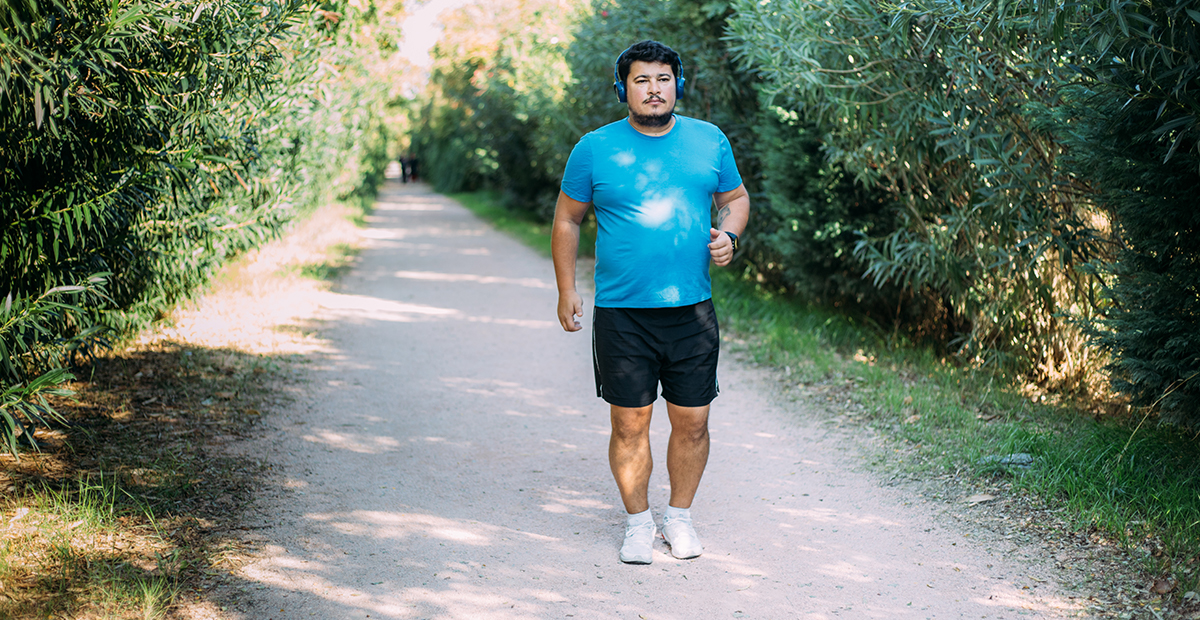You’ve decided to start running and are getting ready to hit the road – or trail or treadmill. Good for you! You are already off to a great start.
Running is a great way to boost your overall health in a number of different ways. It helps to reduce the risk of heart disease and stroke, improves cognitive function, and boosts your overall mood and mental health.
Our sports medicine experts have some suggestions and tips to get you off to a good start and keep you moving and healthy as you continue to run.
Before you start running
Set a goal: Do you have an idea of what you want to do? Running is different for everyone. You might want to run a race, you might want to start exercising for a certain amount of time each day, or you might just want to see how long you can run.
Setting a concrete goal for yourself make it more likely that you’ll follow through and be able to make it happen!
Stretch out: Before you start, do some stretching to loosen up your muscles and warm them up for activity. Warming up your body for exercise is shown to reduce the risk of an injury and being sore after running.
Eric Amschler, one of our athletic trainers, demonstrates some stretches to do before exercising to avoid hip & knee pain.
Hydrate: Try to drink 8-10 ounces of water or a sports drink before you head out for a run. Your body will use the nutrients from that beverage to fuel your muscles and prevent you from getting cramps while you are running.
Nutrition: Similar to hydration, your body can use nutrients from what you eat to help fuel your muscles during a run. Having a small snack 60-90 minutes before a run can help with that.
A few suggestions for food before a run might include:
- a banana
- a granola or protein bar
- toast
- yogurt with granola
Check the weather: If you’re planning to run outside, check the weather. If higher temperatures or humidity are in store, you’ll want to hydrate more frequently. You also might need to adjust how long you’re exercising.
While you run
Hydrate: If you’re going to be out for longer than 10 minutes, bring a water bottle with you. Take your beverage of choice – water, sports drink, etc. – and take a drink when you feel like you need it.
Keep a steady pace: You might be tempted to start out fast and see how long you can last at that pace. Instead, try to hold a pace that allows you to breathe at an even rate and say hello to someone passing by.
Walk/run: Using the walk-run-walk approach is a great way to slowly build up your endurance while running. At first, walk for 2 minutes at a brisk pace, then run for 30 seconds, then walk for 2 more minutes. Continue for as long as you need to so you can finish your run. Over time, you will be able to reduce the amount of time you spend walking and increase the amount of time you spend running.
After you finish running
Stretch: Once you stop your run, catch your breath and keep walking to help slow your heart rate. Stretch out your hamstrings, calves, quadriceps, and groin muscles so they don’t cramp up or get sore over the next few hours.
Plan your next run: Your next run depends on what your goal is. You might take the next day off or you might be running at a different pace tomorrow. You might also be cross training – doing a different type of exercise that uses different muscles in your body while still elevating your heart rate (e.g., cycling, swimming, etc.)
Hydrate: Yes, hydrate again! It’s important to replenish the fluids your body used while you were running. This helps your muscles and body tissue to get stronger and heal more quickly so you can get back to regular activity more easily.
Ways to keep going
Especially if you are starting out, the first few days or weeks of running can be tough to adjust to mentally. Convincing yourself to go out and actually run can be challenging.
Some suggestions to help keep you motivated might include:
- Find a friend or running group to run with
- Choose a reward for a certain amount of running
- Explore new places to run outside
- Create a running playlist or find a new podcast to listen to
If you want to start running but have concerns or just don't know if running is appropriate for you, schedule a consultation with a provider to talk through any questions you may have. Our sports medicine providers can also help you If you end up with any sort of injury that feels worse when you are running, They are available to assess your pain and help you get back to being active.
Beginning a new habit of any kind takes determination and discipline. If you stick with it, you will be calling yourself a runner in no time at all.









